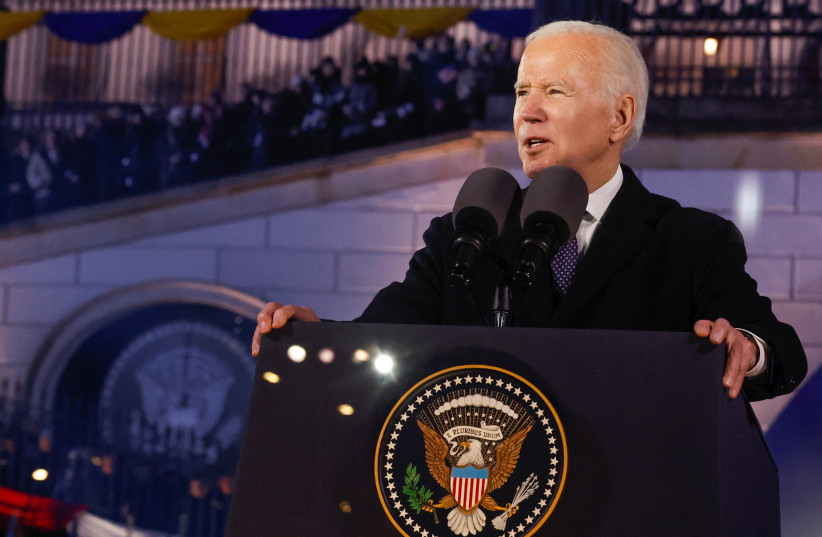US President Joe Biden will travel to the swing state of Pennsylvania on Thursday to unveil a federal budget plan laden with spending proposals and higher taxes on the wealthy that will form a blueprint for his expected 2024 re-election bid.
Biden's proposal faces stiff opposition in Congress this year after Republicans won control of the House of Representatives in November's midterm elections and large parts of it are unlikely ever to be enacted.
The plan, however, is a political statement that directly defies Republican House Speaker Kevin McCarthy's threat to block an increase in the $31.4 trillion limit on federal borrowing unless Biden agrees to rein in federal spending.
Speaking at a Philadelphia union hall, the Democratic president will highlight plans to cut the nation's deficit by nearly $3 trillion over 10 years by raising taxes on those earning more than $400,000 a year and ending corporate tax breaks enacted in 2017 under then President Donald Trump.
A White House official contrasted Biden's vision with that of Republicans, saying the budget would reduce the US deficit while lowering costs for families.

It also proposes raising taxes on the wealthy and large corporations, the official said, and "tackles wasteful special interest giveaways."
Closing the deficit
Biden proposes funding higher outlays and closing the deficit by imposing a 25% minimum tax on billionaires and doubling the capital gains tax from 20%, the White House official said. Biden has also said the budget will propose quadrupling a 1% stock buyback tax, while going after corporations and rich individuals who skip paying taxes.
John Gimigliano, a senior tax executive at KPMG accounting firm, said Biden's proposals had "little-to-no shot" at becoming law, they served an important political purposes.
“While the tax proposals that will be put forth by the administration later today are unlikely to get much traction in a divided Congress, it is the job of the president to reinforce the current administration’s view of the tax system for the American people and to keep these ideas alive in their minds as we head into the 2024 elections," he said in a statement.
Biden will promise to protect those earning less than $400,000 a year from tax increases and safeguard Social Security, Medicare and Medicaid. At the same time, he will offer relief to working families by investing billions to ease the cost of childcare and ensure free preschool for all of the country's 4 million 4-year-olds, and promises to increase rail safety.
White House officials say lowering the cost of childcare will boost the economy and allow more women to return to work. Such proposals also enjoy strong support and could help boost Biden's low approval ratings as he gears up announce his reelection bid this spring.
Republicans say Biden's spending during his first two years in office drove inflation to nearly 40-year highs last summer. The Federal Reserve estimates COVID-related federal spending by Trump and Biden in 2020 and 2021 added 2.5 percentage points to US inflation.
Republicans are already readying $150 billion in cuts to non-defense discretionary programs, including about $25 billion from the Department Education and cuts in foreign aid and programs aimed at preventing sexually transmitted diseases. They say that would save $1.5 trillion over a decade.
Is there common ground? “Very little, very little,” Republican Representative Ben Cline told Reuters. “He doesn't want to cut any spending, he just wants to raise taxes.
